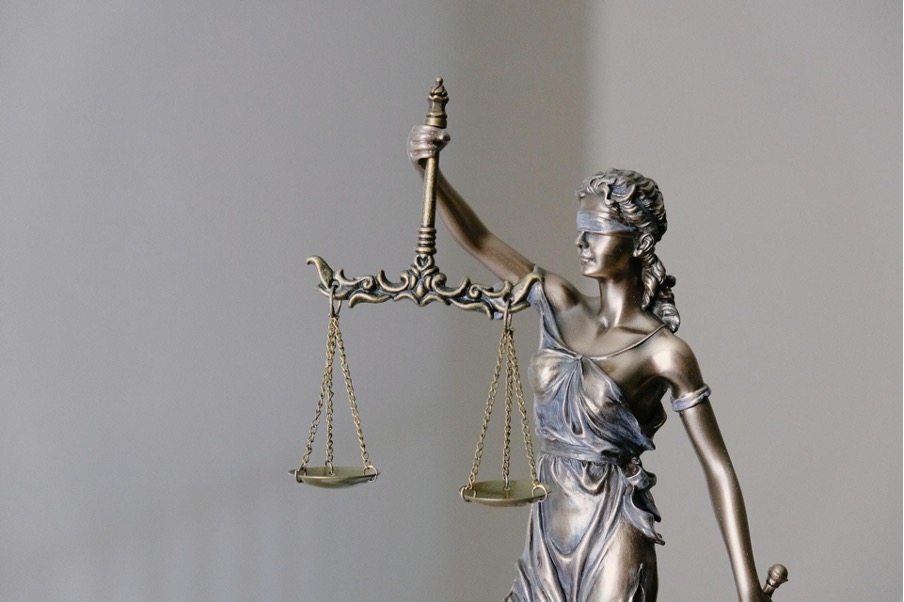
Legal professionals have struggled to clarify if or when perversions of the course of justice have occurred and how offences should be treated by the courts.
But recently the guidelines on perverting the course of justice were strengthened. This now provides needed clarity on prosecutions and sentencing.
But What is Perverting the Course of Justice?
For fairness, the integrity of the criminal justice system is vital. In the UK, perverting the course of justice, effectively damaging that integrity, is a serious criminal offence. If found guilty the penalties include fines and imprisonment.
The Crown Prosecution Service (CPS) defines perverting the course of justice as any act or series of acts carried out with the intention of obstructing, interfering with, or influencing the course of a judicial process.
For example, this could include providing false evidence, intimidating witnesses, destroying evidence or fabricating alibis, you’d be guilty of perverting the course of justice. Anything that undermines the function of the legal system to ascertain the truth, could be classed as perverting the course of justice.
But until now it has been heavily based on case law. Case law refers to laws that are established following decisions made by judges in earlier cases – legal precedents.
Disputed points of law come before the senior courts for deliberation and decision. And legal professionals might refer to these previous legal cases as examples to support their arguments.
The Elements of the Offence
Perverting the Course of Justice incorporates a variety of offences under one charge. As it’s a serious offence, the following elements must be established for it to be considered:
- An Act or Omission: The accused must have either committed an act to pervert the course of justice or intentionally omitted an act that had the same effect.
- Intent: There must be clear evidence that the individual had the intention to pervert the course of justice. This means proving that their actions were deliberate and not accidental.
- Relevance to a Judicial Process: The act or omission must be connected to a specific judicial process, such as a criminal investigation, trial, or appeal.
- Substantial Interference: The act must be substantial enough to interfere with the proper administration of justice.
The Changes
The new rules tighten up the uncertainty and ambiguity around the charges and what sentencing can be handed down, as explained by these specialist solicitors in Chelmsford:
“The guidelines provide much needed clarity and a precise sentencing range which legal practitioners can refer to when advising clients faced with these offences.
Previously case law was used for assistance and was of benefit when determining whether an immediate custody sentence was needed. However, this was inadequate and made it difficult for practitioners and the Courts to determine the length of any sentence.”
Some Examples:
Perverting the Course of Justice encompasses a variety of offences under one charge. Common perverting the course of justice include:
- Providing false details of identity – this could be to either the police or courts to frustrate a police inquiry.
- Concealing evidence – with the intention of avoiding arrest or concerning an investigation.
- Making a false allegation – wrongfully exposes another person to risk of arrest, imprisonment and even a wrongful conviction.
- Providing false statements under oath during a trial is a classic example of perverting the course of justice. False statements can influence the outcome of the trial and potentially lead to an innocent person being convicted.
- Destroying or manipulating evidence includes altering documents, deleting electronic records or hiding physical evidence.
- Threatening or bribing witnesses to change their testimony or refuse to testify can have a significant impact on the trial’s outcome.
Implications and Consequences
Perverting the course of justice undermines public trust, as people begin to doubt the fairness of a trial when the process is manipulated. It can lead to wrongful convictions, allowing the guilty to escape justice and stopping the innocent from a fair outcome.
These new guidelines categorise offences into three offence levels. Minor offences will likely attract a community order as a punishment. The most serious offences in the top category are those with a higher culpability and can cause an equally high level of harm. These will likely be custodial sentences with a range of two to seven years in prison.
Final Thoughts
The concept of perverting the course of justice is a critical component of any legal system, as it safeguards the integrity of the judicial process. The new guidelines help to clarify the sentences and offences for legal professionals.










